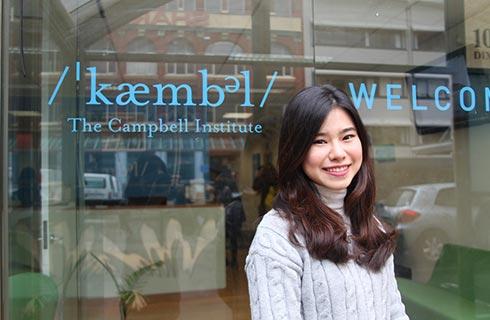人类学文学士
Bachelor of Arts in Anthropology

学历文凭
Bachelor Degree

专业院系
Department of Anthropology

开学时间

课程时长

课程学费

国际学生入学条件
A secondary school diploma or equivalent is required.
Original academic transcripts or certified copies
TOEFL iBT - 90, TOEFL PBT - 577, IELTS - 6.5
IDP—雅思考试联合主办方

雅思考试总分
6.5
了解更多
雅思考试指南
- 雅思总分:6.5
- 托福网考总分:90
- 托福笔试总分:577
- 其他语言考试:Duolingo English Test is required of all international
CRICOS代码:
申请截止日期: 请与IDP顾问联系以获取详细信息。
课程简介
Anthropology offers the opportunity to study human existence in the present and the past and to explore how and why humans vary in their behaviors, cultures and biology. Students choose to study anthropology because they want to understand some of the most intriguing and troubling issues faced by modern society: the origin and meaning of ethnic and gender differences, the role of institutions in social, political and economic life, learned vs. innate behavior, the similarities and differences among human societies, and the meaning of religion, community and family. We offer courses in archaeology, biological anthropology, and sociocultural anthropology. Our faculty are active in research around the world and bring a diversity of experiences to their teaching. Faculty research expertise in archaeology includes the origins of food production, the cultures of prehistoric North, Central and South America, African and Central Asian prehistory, environmental archaeology, geographic information systems (GIS), Biological anthropology faculty focus on the evolution of humans and on the ecology, behavior and evolution of nonhuman primates and Sociocultural faculty conduct research on a wide range of topics, including states, societies and beliefs, political ecology, demography, fertility and population, sociolinguistics, medical anthropology and public health, bodies, gender and sexuality, science and technology, mind and cognition, and religion and politics.
相关申请
 预科
预科 奖学金
奖学金 实习机会
实习机会 在校学习
在校学习 跨境学习
跨境学习 校园授课-线上开始
校园授课-线上开始 在线/远程学习
在线/远程学习
学校排名

世界排名54
数据源:泰晤士高等教育世界大学排名
关于圣路易斯华盛顿大学

圣路易斯华盛顿大学并不是什么“分校”,而是完全独立且实力与排名秒杀西海岸那个UW的私立精英大学。其入学竞争激烈程度和哥伦比亚大学并列排名第5。相关专业学院也是排名显赫:乔治沃伦布朗社会工作学院排名全美第1,医学院排名全美第3,建筑学院排名全美第4,工程学院的生物医学工程系排名全美第12,法学院和Olin商学院排名全美第19。宿舍要比很多中产阶级的住宅还要好圣路易斯华盛顿大学提供丰富多彩的休闲活动,其毗邻森林公园的地理位置为其提供了这方面的便利。高尔夫课程,溜冰场,动物园,可划船的湖泊,艺术历史博物馆,露天剧场以及科学中心都步行即可到达。对于那些距离较远的学生活动场所,学校提供免费的班车服务。大部分宿舍都建在在一个叫做南40的地方,这块面积为40英亩的地方紧挨教学区。所有宿舍配备了空调,且为男女混住,一些校舍还有可容纳六到八人的大套间。新生都可以申请到宿舍,且可保证下一年续住成功。
本校相关课程

工程管理硕士
学历文凭
Masters Degree
开学日期
课程费用总额


项目管理研究生证书
学历文凭
Graduate Certificate
开学日期
课程费用总额


物理疗法医生
学历文凭
Ph.D.
开学日期
课程费用总额


戏剧和表演研究文学硕士
学历文凭
Masters Degree
开学日期
课程费用总额


Master of Science in Biostatistics and Data Science
学历文凭
Masters Degree
开学日期
课程费用总额


Bachelor of Arts in Environmental Policy
学历文凭
Bachelor Degree
开学日期
课程费用总额




















 美国
美国




